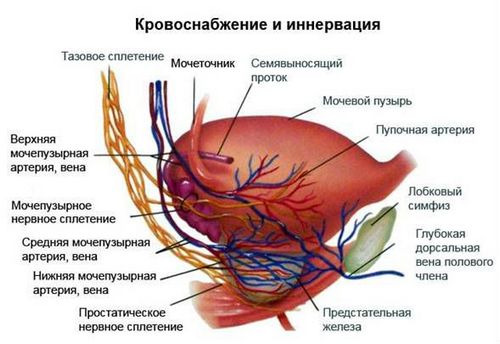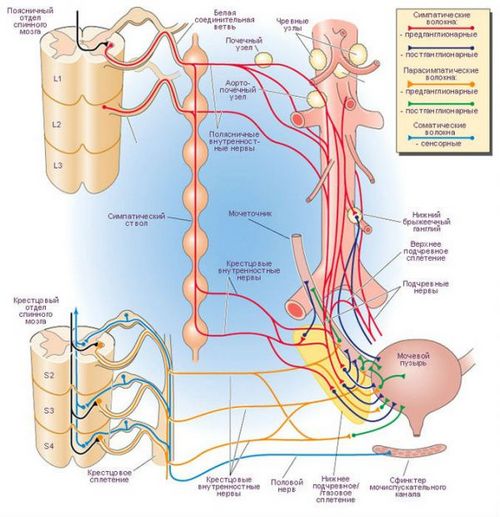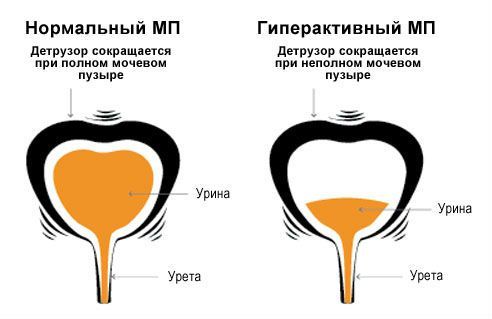The bladder is a hollow organ located in the pelvis of man and serves as a reservoir for collecting urine, which is produced by the kidneys and its excretion through the urination process. Disruption of the normal functioning of this organ can lead to very serious health problems in any person.
Nervous regulation of the bladder allows not only to perform their functions fully, but friendly with other structures of the urogenital system (kidneys, ureters, urethra, genitals).
Urine, which enters the body from the lumen of the ureter is a liquid, which contains the end products of metabolism and must be removed from the body. Pathologies that would alter this process by violation of the innervation of the bladder, are traumatic injury of the spinal cord in the lumbar and sacral spine, as well as the disruption of the normal functioning of the brain.
The bladder and how it is implemented (arbitrarily or inadvertently), is evaluated not only by doctors-urologists and neurologists.

The majority of medical professionals assess the nature of the violation of the functions of the authority and the time of their occurrence, which may indicate the cause of the disease or specific pathological process in the body. Knowledge of the characteristics of the nervous regulation and the condition under which she suffers, allows not only the doctor but for the patient to suspect pathology.
Innervation of the bladder is carried out at the expense of the Central, peripheral and autonomic nervous systems.
The nerve center in the human brain, which is responsible for urination, is the center of Barrington in the reticulum of the bridge. It, sending impulses via the spinal cord to the bladder, forms a lucid urination in human. Motor activity of the authority, which is arbitrary (for example, when a patient is trying to reduce the bladder or, conversely, does not carry out the act of urination), controls the area of the precentral gyrus of the cerebral cortex.

Therefore, in the CNS, for example, as a result of extensive cerebral infarction, trauma, intoxication, is a violation of the pelvic organs, including the bladder. The process of urination becomes uncontrolled, causing significant inconvenience and necessity of nursing care for the patient.
Diagram of the innervation of the bladder
The process of innervation of the bladder is produced by afferent (sensory) and efferent (motor) nerves from the sacral spinal cord. The bladder richly supplied with receptors, which mainly react to the stretching of the body. Thus, due to the impulses that goes to the rear roots of the lumbosacral spinal cord (zone 1 through segment 4) of such receptors, and then directly to the brain, the person realizes that his bladder is full and he needs to use the toilet.

Features of the innervation of the muscles of this organ are related to the fact that, in addition to motor neurons, which begin their journey from the sacral plexus, the bladder is also controlled by the parasympathetic nervous system. Centres such regulation serve the lateral nucleus of the spinal cord at the level of the 2nd thoracic segment (Th2), the 1st and 2nd lumbar segments (L1-L2). Sympathetic innervation of the body, though dedicated physicians, however, the essential role of this system in a functioning bladder has not been fully established.
Overactive bladder is the result of innervation of the organ
Violation of vegetative regulation of the body associated conditions such as involuntary urination (in moments of stress, fear, strong psychological shock), bedwetting, acute urinary retention.
It is important to note that the nerve fibers involved in the regulation of the activities of such a body are closely associated with nerve structures innervating the ampulla of the rectum, pelvic floor muscles, genitals of both men and women. Therefore, pathology of urinary bladder can cause various neurological abnormalities of these anatomical structures.




you’ve gotten a terrific blog right here! would you prefer to make some invite posts on my blog?